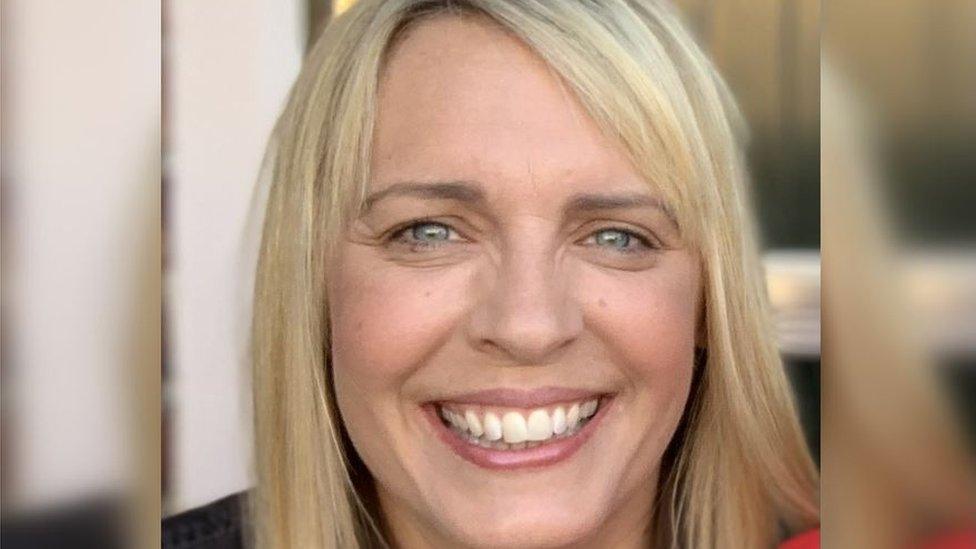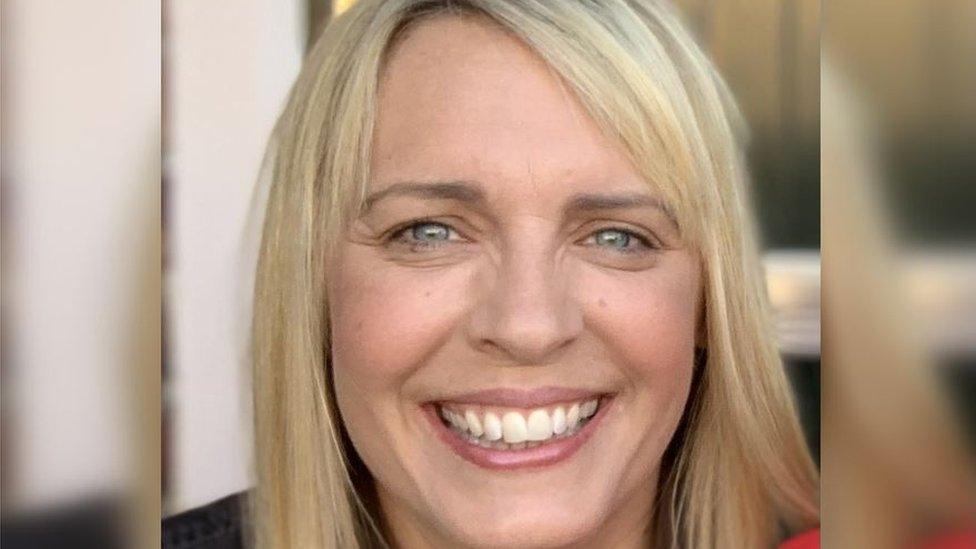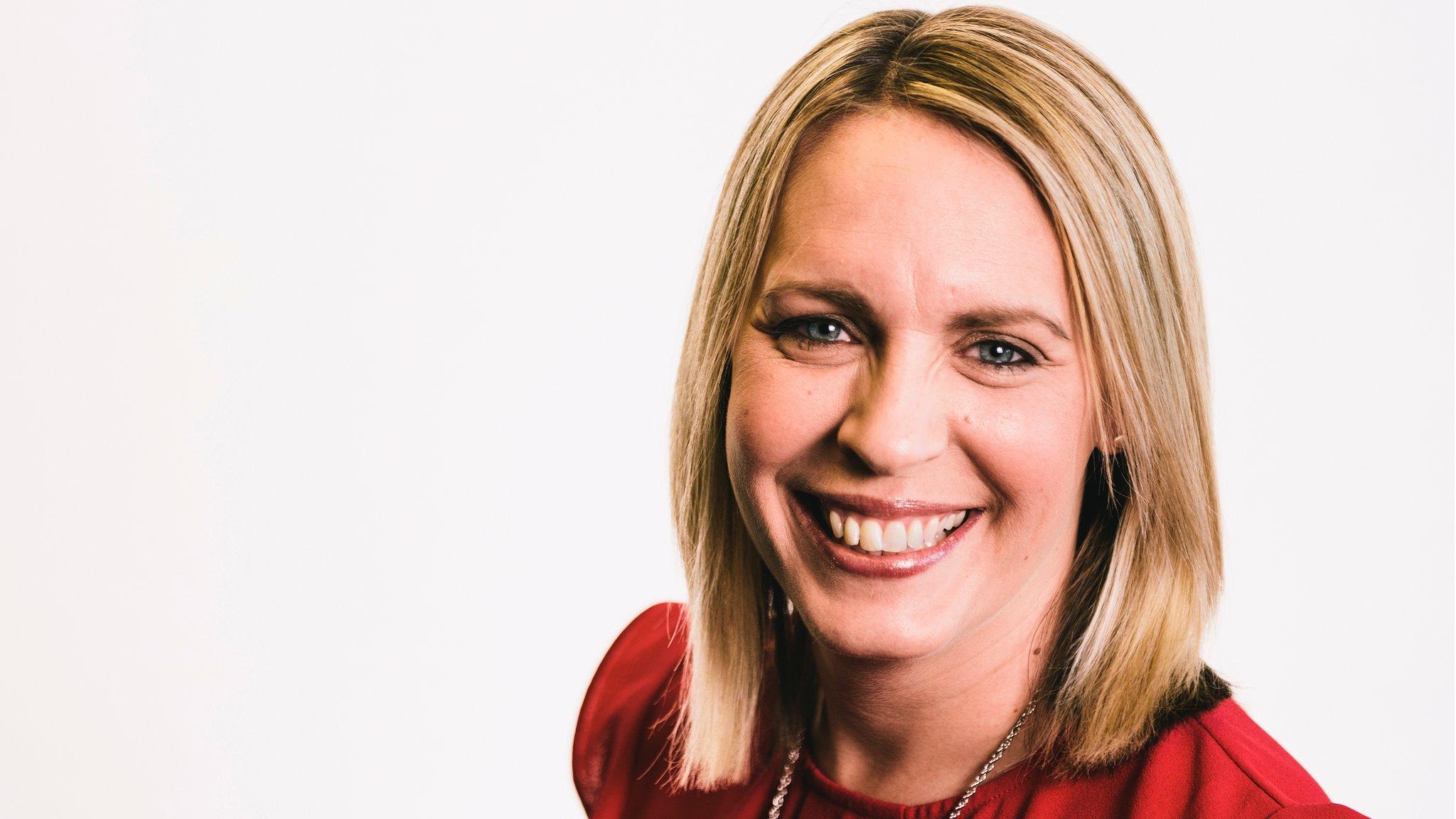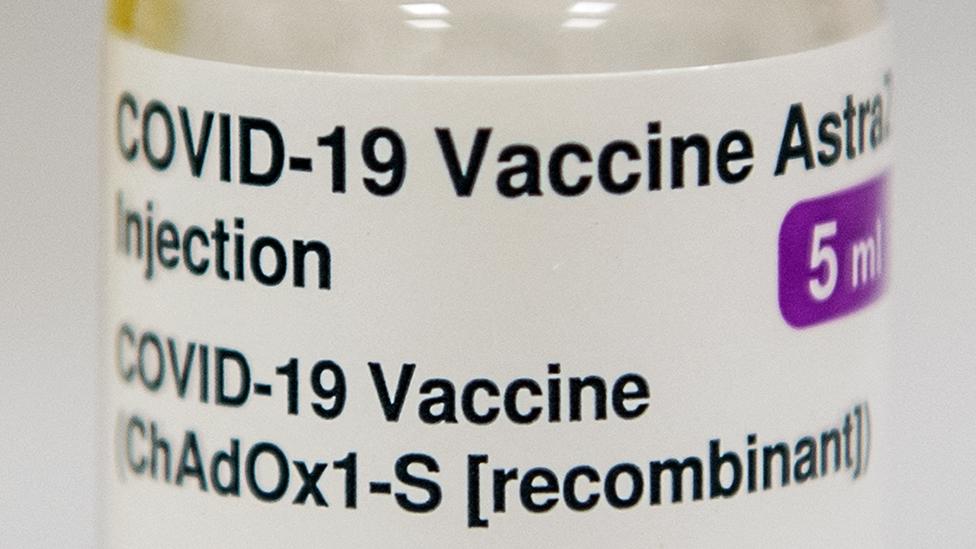Lisa Shaw death: Husband calls for vaccine choice
- Published
Gareth Eve’s wife, BBC Newcastle presenter Lisa Shaw, died in hospital after a bleed on the brain
A man whose wife's death is being investigated over possible links to the AstraZeneca Covid-19 jab is calling for people to have their choice of vaccine.
A coroner is considering if the vaccine contributed to the death of BBC radio presenter Lisa Shaw, 44, in May.
Her husband Gareth Eve said the jab had been "outstanding" but its "risks" should be "recognised".
The government said 81 million vaccines had been administered, with benefits outweighing risks for most people.
Mr Eve said he and his wife, who was a presenter on BBC Radio Newcastle, had both been "excited" about being vaccinated so she could "give her mam a hug" having been a "stickler" for following lockdown rules.

Lisa Shaw was a presenter on BBC Radio Newcastle until her death in May
A week after getting her first dose of the AstraZeneca vaccine, she started getting headaches and ended up being taken to Newcastle's Royal Victoria Infirmary (RVI) for treatment for blood clots.
He said the treatments initially seemed to work well, but when he went to visit her on a Sunday afternoon she seemed confused and was suffering further headaches.
Doctors diagnosed a bleed on the brain and she was transferred to the hospital's high dependency unit.
"I went to see her and she told me to go home and see our son because it was late," Mr Eve told the BBC's Victoria Derbyshire.
"She said 'I'm tired'. I gave her a kiss. And I never spoke to her again."


There is a known side-effect to the AstraZeneca vaccine that is very rare, known as vaccine-induced thrombosis and thrombocytopenia (VITT). That's a condition where clots form in combination with low platelet levels, and that is something that doesn't happen naturally. Therefore, the Medicines and Healthcare products Regulatory Agency (MHRA) thinks there is a strong likelihood that it is the vaccine causing this.
There have been almost 400 cases - most after the first dose - with 71 deaths, so it's about one death per 650,000 doses.
There is some suggestion there's a slightly higher risk in women than men but it's not absolutely clear, and slightly higher incidence in young people. That is why initially the Joint Committee on Vaccination and Immunisation (JCVI) said initially people under 30 should not have the AstraZeneca vaccine, which they changed to under 40 in May.
All medicines including vaccines have risks as well as benefits. For individuals and society, you have to set that against the risks you are trying to prevent, which is Covid.
With Covid there have been something like 1,900 deaths per one million people in the UK and Covid itself is known to be a serious cause of clots.
Something like one in five people hospitalised with Covid will end up with clots.

Mr Eve said he was "absolutely not an anti-vaxxer" but while "we don't know this information, maybe the answer is to give people the alternative".
"It's not as if we don't have other vaccines available to us, so while there is this cloud over AstraZeneca, maybe put it on ice and say we are going to look into giving people the other jab," he said.
Mr Eve added: "What the vaccine has done is unbelievable. The work these people have done to get the country back on its feet is outstanding.
"But we need to recognise there are families who have been affected by this jab."
He said he realised the number of fatalities linked to the vaccine was a "drop in the ocean" but said: "It hasn't been a drop in the ocean for our family, it has hit our family like a tidal wave."
'Deeply saddened'
The BBC asked the Department of Health if people should be given a choice of vaccine and a government spokesperson said: "We are deeply saddened to hear about the death of Ms Shaw and our thoughts are with the family.
"As the UK's independent medicines regulator, the MHRA, and the Joint Committee on Vaccination and Immunisation have said, for the vast majority of people, the benefits of preventing serious illness and death outweigh any risks and the vaccines have saved thousands of lives.
"People will be offered a vaccine that is most suitable for them. For example, everyone under the age of 40 will be offered an alternative to the AstraZeneca vaccine, as advised by the JCVI.
"Those who have already had a first dose of the AstraZeneca vaccine should receive a second dose of the same brand, irrespective of age, except for the very small number of people who experienced blood clots with low platelet counts from their first vaccination."
MHRA chief executive Dr June Raine said: "It is still vitally important that people come forward for their vaccination and for their second dose when invited to do so."
She said suspected side-effects linked to vaccines can be reported to the MHRA's yellow card scheme, external.

Follow BBC North East & Cumbria on Twitter, external, Facebook, external and Instagram, external. Send your story ideas to northeastandcumbria@bbc.co.uk, external.
- Published10 June 2021

- Published27 May 2021

- Published23 May 2021

- Published7 May 2021
